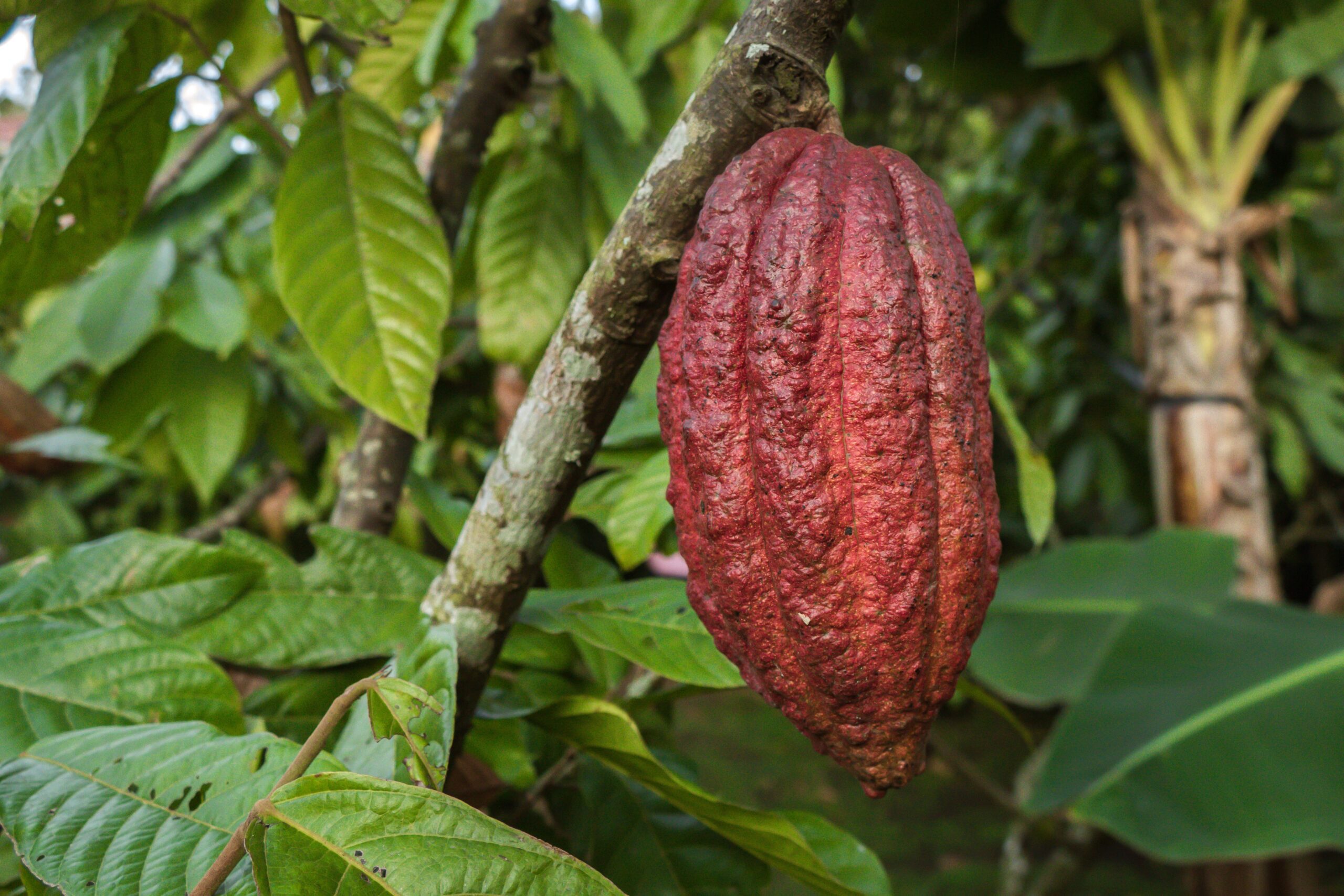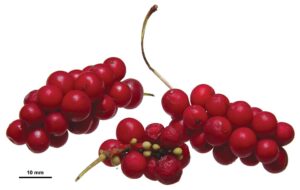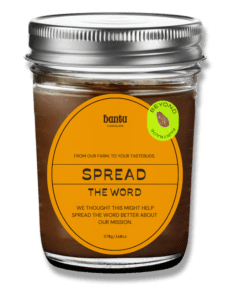
Calories in Chocolate – How to Eat Chocolate Without Gaining Weight
May 6, 2024
Tree to Bar Chocolate: How Our Ethical Model Benefits Farm Workers, Consumers & Community
May 31, 2024Adaptogens vs. Caffeine
Which is Good for You?
Caffeine is the most widely consumed drug, naturally found in coffee, tea, cacao, and guarana. It is also added to soft drinks, energy drinks, and supplements. In moderate quantities, caffeine increases alertness, boosts energy, and helps you focus.
Adaptogens are bio-regulators, naturally occurring as herbs and mushrooms. They act through the immune-neuro-endocrine system and the hypothalamic-pituitary-adrenal axis, two key pathways that regulate the body’s response to stress, to help the body recover from mental and physical stress. Adaptogens may also boost immunity and overall well-being.
There’s no law that demands you choose between caffeine and adaptogens. In fact, you can add adaptogens to your coffee, tea, or hot chocolate. However, there are valid reasons why many people may consider adaptogen alternatives to caffeine to relieve stress and up energy.
Unlike caffeine, adaptogens don’t cause a rise and crash in energy levels. Instead, adaptogens help the body to maintain a balance, resulting in both short- and long-term benefits for mental and physical stress.
This article compares the actions of caffeine to adaptogens.
Before we dive in, it’s important to give you a brief history of adaptogens and some examples, because there are many adaptogens with different effects on the body.
A Brief History of Adaptogens
Adaptogen is a functional term coined in 1947 by the Soviet scientist Lazarev to describe substances from plants and synthetic products that help the body adapt to stressful situations. Their roots are in traditional medicine where they were used for centuries to recover from fatigue, help memory impairment, and protect the immune system.
Adaptogens, especially Schisandra chinensis, were used during World War II to help pilots fly better and faster for longer periods. Schisandra chinensis also known as Chinese magnolia-vine or five-flavour fruit, is a vine plant native to Northern China, Korea, and the Russian Far East.
A few years after the war, adaptogens found use in professional sports for their benefit in increasing the body’s resistance to stress and promoting physical endurance.
Their popularity has since grown in the general population as substances that help the body adapt and maintain balance under stress and for general well-being.

Schisandra berries By Vladimir Kosolapov – Own work, CC BY 3.0, Wikipedia Commons
Some Examples of Adaptogens
The list of adaptogens is long, including popular and not-so-popular ones. Below is not an exhaustive list, but what you may often come across as examples of adaptogens.
|
Adaptogen |
Origin and growing areas |
|
Ashwagandha |
India, the Middle East, Parts of Africa |
|
American ginseng |
Eastern North America |
|
Rhodiola Rosea |
Arctic regions of Europe, Asia, North America |
|
Liquorice root |
Western Asai, North Africa, Southern Europe |
|
Maca (Peruvian ginseng) |
Peruvian Andes Mountains, Bolivia, South America |
|
Baobab |
Madagascar, mainland Africa, Australia |
|
Moringa |
The Indian subcontinent, tropical regions |
|
Turmeric |
Indian subcontinent, Southeast Asia, Middle East, Africa, Europe |
|
Schisandra chinensis |
Northern China, Korea, the Russian Far East. |
|
Holy Basil |
Australia, Malesia, Asia, the western Pacific |
|
Eleuthero root (Siberian ginseng) |
Northeastern Asia |
|
Goji berry |
East Asia |
|
Ginger |
Maritime Southeast Asia, tropical Africa, parts of Central America and the Caribbean, Australia |
|
Kola (contains caffeine) |
Tropical rainforests of Africa |
|
Cacao (contains caffeine) |
South America, West Africa, some parts of Southeast Asia. |
Adaptogens vs. Nootropics
There’s some overlap between adaptogens and nootropics as they both offer the potential to boost brain performance, but they’re not the same thing. Nootropics are a class of substances that come as dietary supplements, synthetic compounds, or prescription drugs to enhance brain performance. Caffeine and some adaptogens like Rhodiola rosea, ginkgo biloba, and Panax ginseng are also nootropics.
While nootropics are mostly useful in upping brain performance, to enhancing memory and thinking, adaptogens can be used for general well-being and helping the body cope with trauma and different types of stressors.
READ ALSO: Adaptogens and Fermented Beverages
Adaptogens vs. Caffeine: Effect on Brain
Caffeine is a central nervous system stimulant that acts by blocking adenosine receptors. Adenosine is the chemical responsible for relaxing the brain to make it tired. By blocking adenosine from binding to its receptors, caffeine ‘tricks’ the brain into believing it’s still on top of its game, resulting in increased alertness and energy.
When the effects of caffeine wear off, the brain experiences an energy crash. Some drinkers may then go for another cup of coffee or energy drink to pick themselves up, which can lead to a dangerous vicious cycle. At higher doses, caffeine can cause nausea, vomiting, headaches, restlessness, anxiety, and a host of other negative side effects.
Adaptogens also stimulate the central nervous system like caffeine, but through a different mechanism. Instead of ‘tricking’ the brain into believing it’s not tired, adaptogens produce a stable balance in the hypothalamic, pituitary, and adrenal glands. This explains why adaptogens don’t cause an energy crash as caffeine does when its effects wear off. Also exerting their effect on the immune-neuro-endocrine system, adaptogens are beneficial to a host of other body systems. Their beneficial effects include relief and prevention of stress and fatigue, increased attention, improved focus and mental capacity.
Adaptogens vs. Caffeine: Effect on Cortisol, the Stress Hormone
Caffeine increases the release of cortisol when the body is stressed out, whether by minor issues like paying bills or major life-changing events like the loss of a dear one. Cortisol is a stress hormone released by the adrenal glands to help the body survive these threats. In the short term, this cortisol response is normal, as the hormone levels would return to normal after the threat. But when the release of cortisol is triggered over time, it can lead to health issues like weight gain, heart disease, diabetes, mood changes, depression, and others.
On the other hand, adaptogens normalise chronically increased cortisol in the blood. They bring about homeostasis, reducing the effects of chronic stress.
Adaptogens vs. Caffeine: Onset of Action
You can experience the stimulant effect of caffeine as quickly as 5 minutes after taking a caffeinated drink like coffee, tea, or cacao. Its effects, on the other hand, take longer to wear off. Depending on individual rates of absorption and metabolism plus sensitivity to caffeine, it can take anywhere from 2 to 12 hours for the effects of caffeine to diminish. Drinking coffee or any other caffeinated drink later in the afternoon or evening may therefore keep you awake at night.
Unlike caffeine, the beneficial effects of adaptogens may not become noticeable until you’ve stuck with the plant extract for a few days or even weeks, depending on the adaptogen. Adaptogens work through different body systems while caffeine has a straightforward mechanism of action on the central nervous system.
Do not expect a quick fix when you’re starting on adaptogens. Aim for the long haul.
Drinking Adaptogens Every Day vs. Coffee
In normal doses, you can drink coffee daily without complications. The safe daily limit is 400mg of caffeine (about 4 cups of coffee) and you need to consider that you may be taking caffeine from other sources like chocolates or caffeinated soft beverages.
LEARN MORE: Caffeine in Coffee vs. Tea vs. Hot chocolate
400mg of caffeine per day is safe for most healthy adults, but some people may not tolerate even small amounts. These individuals have caffeine sensitivity and need to avoid the substance. According to the Mayo Clinic, other people who may need to cut back on their caffeine use include those who consume more than 4 cups of coffee per day, those finding it difficult to fall asleep, and people on medications that may interact with caffeine.
Studies show that you can take adaptogens daily for about six months before your body develops tolerance to their effects, that is, they become ineffective. In such cases, it may be advisable to pause for some time before restarting the habit. It is also important to check with a doctor before you begin taking adaptogens to treat serious illness. A naturopathic physician would recommend dosage and frequency, depending on your desired outcome.
Pregnant women and breastfeeding mothers should avoid adaptogens or caffeine to prevent harm to the foetus.
Side Effects of Adaptogens vs. Coffee (caffeine)
Adaptogens are plant extracts or synthetic products and are not without adverse effects. As there are many adaptogens, their side effects may vary. They include allergic reactions, abdominal pain, constipation, nausea, and diarrhoea.
In moderate doses (below 400mg daily), caffeine is safe for most healthy adults. Its side effects include sleeplessness, nervousness, restlessness, nausea, increased heart rate, and other side effects. Larger doses might cause headaches, anxiety, and chest pain. You may also experience withdrawal symptoms when you abruptly quit caffeine. These include fatigue, decreased energy, depressed mood, decreased alertness, irritability, drowsiness, restlessness, depressed mood, difficulty concentrating, and feeling foggy.
Can you replace coffee with adaptogens?
Whether you can replace coffee with adaptogens depends on your goals. You can replace coffee (caffeine) with adaptogens in the following situations:
1. You seek general well-being long-term. Adaptogens will normalise the chronic release of cortisol, helping your body heal from and prevent chronic stress from all kinds of stressors. You can use adaptogens to:
o Lessen anxiety.
o Reduce fatigue and or increase energy.
o Cope with trauma.
o Regulate emotional reactions to stress.
o Boost your immune system.
2. You want a boost in energy and focus without the ensuing crash that is characteristic of caffeine. Adaptogens will balance your energy, so you don’t crash when their doses wear off from your system.
3. You have caffeine sensitivity and want to replace the drug with a beneficial herbal beverage.
4. Menstruating women who want to avoid the oestrogen imbalance from caffeine consumption.
If you’ve been on caffeine for a long time, do not quit cold turkey. Gradually reduce your daily consumption over time to avoid withdrawal symptoms.
Below is a summary of the actions of different herbal adaptogens to help you decide on what adaptogen you can choose over caffeine.
The potential benefits of adaptogens do not become visible immediately. Choose a herb and stick with it for a few days or weeks to see results.
|
Adaptogen |
Potential health benefit |
|
Ashwagandha |
May reduce stress and anxiety |
|
Goji berry |
May boost energy, physical and mental performance |
|
Maca root |
May improve mood and energy |
|
Holy basil |
May reduce mental and physical stress, stress-related anxiety, and depression. May improve memory and thinking |
|
Rhodiola rosea |
May prevent physical and mental fatigue |
|
Schisandra chinensis |
Can boost mental performance and physical endurance |
|
Liquorice root |
May reduce oxidative stress |
|
Eleuthero root |
May improve focus and prevent mental fatigue |
|
Asian ginseng (Panax ginseng) |
May improve physical and mental fatigue, improve energy and performance during stressful situations |
|
Astralagus |
May improve fatigue |
Source: healthline.com, clevelandclinic.com.
Cacao + Adaptogen = Adaptogenic Cacao!
While you can replace caffeine including that in cacao (also an adaptogen!), you may also rather consider combining the two for a powerful drink that reaps the benefits of both cacao and adaptogens. Here are a couple of ways to make adaptogenic hot chocolate:
· Use cacao powder or shave a dark chocolate bar into a hot adaptogenic drink to make adaptogenic hot chocolate.
· Get our chocolate spread fortified with Maca, an adaptogen that improves mood and energy. You can spread it directly on toast or scoop it into a cup for a delicious cup of hot chocolate.
Final thoughts
Adaptogens have been in use for centuries to recover from fatigue, help memory impairment, and for general well-being. Their beneficial effects found a place in professional sports due to their ability to increase the body’s resistance to stress and boost endurance. These bio-regulators can be a suitable replacement for caffeine as they relieve stress, and boost energy and focus without the energy crash typical of caffeine. To see noticeable benefits from adaptogens, users need to stick with the herb, extract, or synthetic options for some days or weeks.
References:
https://www.ncbi.nlm.nih.gov/pmc/articles/PMC8398443/
https://www.webmd.com/vitamins/ai/ingredientmono-979/caffeine
https://www.healthline.com/health/adaptogenic-herbs
https://www.healthline.com/health/stress/smart-girls-guide-to-adaptogens
https://www.sleepfoundation.org/nutrition/how-long-does-it-take-caffeine-to-wear-off
https://nyaspubs.onlinelibrary.wiley.com/doi/full/10.1111/nyas.13399
https://www.mayoclinic.org/healthy-lifestyle/stress-management/in-depth/stress/art-20046037
https://my.clevelandclinic.org/health/drugs/22361-adaptogens
https://www.verywellmind.com/caffeine-stress-and-your-health-3145078
Chocolate Extinction: Fact vs. Fiction + What Chocolate Lovers Can Do
Chocolate ExtinctionFact vs. Fiction, What Consumers Can Do Share On Facebook Twitter Email Is the world really running out of chocolate? Not really. Currently the global […]
Corporate Chocolate Gifting Ideas to Appreciate Employees and Delight Clients
Corporate Chocolate GiftingHow to Appreciate Employees & Delight Clients Share On Facebook Twitter Email When it comes to corporate gifting, a one-gift-fits-all approach just doesn't cut […]
Cacao Supper Club at Home: Guide to Tasting Chocolate, Cacao Tea, and Pulp Juice
Cacao Supper Club at HomeGuide to Tasting Chocolate, Cacao Tea, and Pulp Juice Share On Facebook Twitter Email Imagine gathering around the table with a few […]






